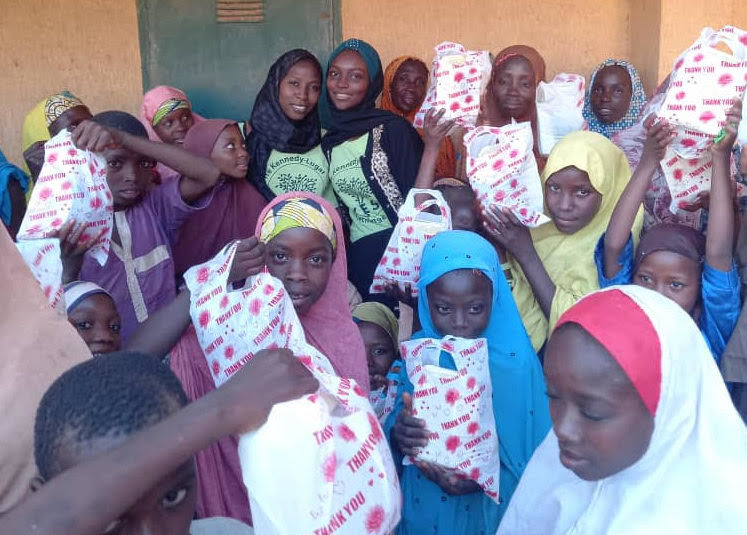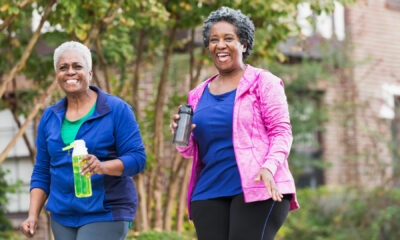Lifestyle
Everyday Habits That Harm Your Heart

You don’t need to have a poor diet or a cigarette habit to put your heart at risk. Often, it’s the small, everyday choices—the ones we barely notice—that quietly wear it down. Maybe it’s another skipped meal, a day spent glued to a screen, or that familiar tightness in your chest after a stressful phone call. These seemingly harmless patterns, repeated over time, can build into a real problem. If your heart could talk, it would probably ask for a few changes.
Rushing Out Without Breakfast

Skipping breakfast might seem like no big deal, especially when mornings are hectic. But doing it often can raise your blood pressure, mess with your sugar levels, and leave your heart working harder than it should. Grabbing a sweet pastry or an energy drink on the go doesn’t help either. Your heart thrives on steady energy. A bowl of oats, some fruit, or even plain bread with eggs is better than nothing.
Sitting for Hours Without Moving
Many of us spend most of the day sitting—at a desk, in traffic, or in front of the TV. When this becomes your norm, blood circulation slows down and your risk of developing heart-related issues increases. You don’t need to run a marathon. Just standing up every hour, walking around, or stretching your legs regularly can make a difference. Think of it as keeping your blood in motion, like oil in an engine.
Ignoring Sleep Patterns

Sleep isn’t just about rest—it’s when your heart does some of its most important recovery work. Skimping on sleep, or oversleeping regularly, throws your body’s natural systems off balance. Research shows that both habits are linked to increased risk of heart disease. Aim for 7 to 8 hours a night. Try to keep a steady sleep routine, and wind down properly before bed. The quality of your sleep matters as much as the quantity.
Letting Stress Pile Up
Stress has a way of creeping into everything—work, home, even rest. When it becomes constant, it affects your blood pressure and raises inflammation in the body, both of which strain your heart. Some people bottle it up. Others carry it quietly, thinking that’s just life. But learning how to release stress—whether through walking, deep breathing, talking to someone, or just unplugging—can take a real weight off your heart.
Too Much Processed Food

It’s easy to fall into the habit of eating whatever’s quick and available. But many packaged foods are loaded with salt, sugar, and unhealthy fats that can slowly damage your arteries. Try to eat more home-cooked meals with fresh ingredients. When you shop, check labels and choose options with less sodium and added sugar. Your heart doesn’t need fancy diets—it just needs food that’s real.
Avoiding Check-Ups
It’s easy to ignore what you can’t feel. High blood pressure and cholesterol often come with no warning signs. That’s why regular health checks are so important. Knowing your numbers—blood pressure, cholesterol levels, blood sugar—can help you spot problems early, before they lead to something more serious. It’s a small step with big benefits.
The “Occasional” Cigarette or Binge Drink

You might tell yourself it’s just one drink, just one smoke, only once in a while. But even occasional habits can build up. Alcohol and tobacco are two of the biggest culprits when it comes to damaging the heart. Cutting back—or quitting altogether—gives your heart a much-needed break and lowers your long-term risk.
Not Moving Enough
Regular movement helps keep your heart strong and your blood flowing smoothly. You don’t need a gym membership. A brisk walk around the neighbourhood, taking the stairs instead of the lift, or dancing while you clean the house all count. The key is to move—daily, consistently, and in ways that feel good to you.
In Summary
Your heart doesn’t ask for much. Just a bit of attention, some better choices, and a routine that allows it to work without strain. These small adjustments in your daily habits don’t require perfection—just awareness and consistency. After all, a healthy heart is one of the best gifts you can give yourself.
Lifestyle
Ramadan Is Here! Meaningful Ways to Make the Most of the Holy Month

Ramadan arrives each year with predictable changes in daily routine: altered sleep schedules, crowded mosques, slower afternoons, and long evenings built around prayer and shared meals. Beyond fasting from dawn to sunset, the month is a time for reassessment. It invites a review of habits, relationships, priorities, and how time is used. For many people, the challenge is not understanding Ramadan’s significance, but turning intention into daily action. Making the most of the month requires planning.

Photo Credit – Google
Fasting is often treated as an endurance task, measured by hunger and thirst. It can also be understood as training in self-discipline. The same self-control that prevents eating or drinking can be applied to speech, spending, and digital habits. Limiting idle scrolling, avoiding unnecessary arguments, and reducing impulsive purchases turns fasting into a broad change in habits. Attaching a non-food discipline to the fast makes the lesson practical. A fixed daily break from social media or a strict rule against gossip shifts the focus of fasting beyond physical hunger and into conduct, reflecting the ethical principles Ramadan emphasizes.

Photo Credit – Google
Ambition can undermine consistency. Many people begin the month with intense plans that collapse by the second week. A better strategy is to design a schedule that fits existing responsibilities. Short, consistent acts are more effective than occasional extremes. A manageable plan might include a set number of Qur’an pages each day, a weekly charity contribution, and specific prayer goals that account for work and family life. Schedule these commitments clearly. Treating worship with the same seriousness as appointments makes it sustainable.
Suhoor and iftar can easily become rushed or indulgent, yet they frame the day. Eating mindfully changes their purpose. Choosing balanced portions, avoiding excess, and beginning with gratitude reinforces the reason for fasting: awareness of dependence and self-control. Families can turn iftar into a daily checkpoint. A short conversation about what each person learned or struggled with during the fast adds reflection to the daily pattern and encourages accountability.

Photo Credit – Google
Charitable giving often peaks in the final nights, but spreading it across the month makes the effort more consistent. Setting a daily or weekly plan, even in small amounts, builds discipline. Charity is not limited to money. Time, skills, and attention also count. Organizing a recurring act of service, such as food distribution or tutoring, turns generosity into regular action and helps it continue after Ramadan ends.
The month also offers an opportunity to repair strained relationships. Reaching out to relatives, apologizing for past conflicts, or reopening communication with friends should be intentional, not postponed. Listing a few relationships that need attention and assigning each one a specific action, a call, visit, or message, makes reconciliation a clear objective.

Photo Credit – Google
Ramadan fatigue is real. Late nights and early mornings disrupt sleep, affecting mood and concentration. Protecting energy is as important as protecting hours. Strategic naps, simplified meals, and realistic social commitments help maintain focus on worship. Reducing unnecessary engagements is a matter of priorities. The month is temporary, and preserving energy allows fuller participation in prayer and reflection.
An overlooked part of making the most of Ramadan is planning for what follows it. The purpose of the month is not a temporary increase in devotion that disappears afterward. Identifying one or two practices to continue, a weekly fast, a fixed charity amount, or daily reading, connects Ramadan to the rest of the year. Writing these commitments down before the month ends increases the chance they last. Ramadan then becomes a period meant to shape long-term habits rather than a one-time experience.
Sex & Relashionships
Love or Compatibility: What Really Makes a Relationship Last

When people talk about lasting love, they often mean the initial excitement or spark. It’s easy to assume that if two people love each other, nothing else matters. But experience and research show that what keeps relationships strong over time is rarely just passion. More often, it is compatibility, the practical alignment of values, lifestyle, and life goals.
Romantic chemistry is powerful. Studies show that attraction activates the brain’s reward centres, triggering strong positive feelings. But this excitement naturally fades as initial excitement diminishes. Relationships that rely mainly on this early spark often struggle when daily challenges and responsibilities arise. When couples say “we just fell out of love,” it is usually because the initial chemistry was not supported by deeper compatibility.

Photo Credit – Google
Compatibility is not about liking the same movies or hobbies. It is about aligning on core aspects of life: values, ambitions, communication styles, emotional rhythms, and expectations. Couples who share these foundations navigate conflicts with less friction, make decisions together on major matters like finances and family, enjoy day-to-day life, and support each other’s growth. Compatibility allows a relationship to function even during challenges. Without it, the relationship can still function, but it is vulnerable to stress and disagreement.

Photo Credit – Google
Research shows that love alone does not predict long-term satisfaction; compatibility does. Couples who share beliefs, communicate effectively, and pursue common life goals report more stable and satisfying relationships. Shared values help couples prioritise what matters most, aligned communication reduces misunderstandings, common goals create direction, and emotional attunement builds resilience when life gets tough. Compatibility also grows with effort. Couples who negotiate, adapt, and understand each other’s needs strengthen their bond over time.

Photo Credit – Credit
Love still plays a role. It motivates commitment and encourages couples to invest in the relationship. A relationship with love but no compatibility can feel exciting early on, but it is likely to struggle when reality tests expectations. Conversely, two compatible people who do not nurture emotional connection risk forming a partnership lacking emotional depth.

Photo Credit – Google
For relationships that last in the Nigerian context, where extended family, social expectations, and financial pressures often come into play, compatibility is critical. Couples should focus on honest communication, shared future goals, conflict resolution, trust, and supporting each other’s personal growth. When love and compatibility work together, the relationship is better able to handle daily challenges.
Lasting partnerships are not built solely on emotion. They are built intentionally. They require daily choices, mutual understanding, and the willingness to grow together. This sustains relationships.
Lifestyle
Abuja’s 6 Classic Restaurants Worth Visiting

Abuja’s restaurant culture has expanded over the past decade, shaped by a growing professional population and dining habits that prioritise repeatable quality. While new venues continue to appear across the city, only a few become regular choices rather than occasional stops. The restaurants on this list have continued to attract regular diners by limiting their menus to well-defined offerings and maintaining consistent food quality and service. Located across Wuse 2, Maitama, Mabushi and Gwarinpa, they reflect a range of cuisines and dining formats, with a shared emphasis on consistent execution. Their continued relevance is driven less by visibility or short-term trends and more by repeat patronage, making them regular reference points within Abuja’s everyday dining landscape.
Wakkis Food – Indian Cuisine with Depth
171 Aminu Kano Crescent, Wuse 2, Abuja

Photo Credit – Google
Wakkis Food remains one of Abuja’s most dependable options for Indian cuisine. Located in Wuse 2, the restaurant focuses on well-established Indian dishes prepared with proper spice balance and technique. Meals such as biryani, kaathi rolls and tandoori selections are robust, reflecting a kitchen that prioritises accuracy over adaptation.
The space itself is simple and functional, which suits its core audience: diners who value flavour and portion consistency. It works equally well for weekday lunches and relaxed dinners, making it a regular stop for both locals and visitors seeking familiar Indian staples.
Tulip Bistro – Refined Dining in Wuse 2
Sunset Place, Wuse 2, Abuja

Photo Credit – Google
Tulip Bistro has positioned itself as a refined but accessible dining option within Wuse 2. Its menu leans towards continental and European-style dishes, presented with attention to balance and presentation. The restaurant’s interior supports quieter dining, making it suitable for conversations that require privacy without formality.
Rather than chasing trends, Tulip Bistro maintains a steady approach to its offerings. This has helped it retain a loyal customer base drawn to its calm atmosphere and dependable service, particularly for evening meals and business-related dining.
Woks & Koi – Contemporary Asian Dining
18 Durban Street, Wuse 2, Abuja

Photo Credit – Google
Woks & Koi offers a contemporary take on Asian cuisine, with a menu that spans Chinese and broader Pan-Asian influences. Its appeal lies in the combination of structured plating, controlled flavours and a modern dining environment that feels deliberate rather than decorative.
The restaurant is often chosen for group dinners and formal entertaining, largely due to its consistent service and menu variety. While individual dish preferences may differ, Woks & Koi maintains a reputation for reliability within Abuja’s Asian dining space.
Chopsticks – A Maitama Staple
52 Mississippi Street, Maitama, Abuja

Photo Credit – Google
Chopsticks has long been part of Abuja’s restaurant landscape, particularly in Maitama. Its menu focuses on classic Chinese dishes served in generous portions, appealing to diners who favour familiar flavours prepared without excessive modification.
The restaurant’s longevity is tied to its straightforward approach: predictable service, established recipes and a relaxed setting. It continues to attract families and regular patrons who prioritise comfort and consistency over experimentation.
BluCabana – A Destination Dining Experience
1322 Shehu Yar’Adua Way, Mabushi, Abuja

Photo Credit – Google
BluCabana operates as more than a conventional restaurant. With its expansive layout and outdoor seating, it offers a setting that encourages extended visits rather than quick meals. The menu spans Mediterranean, Middle Eastern and international dishes, giving diners flexibility without feeling unfocused.
Its appeal lies in the overall environment. Whether for weekend lunches or evening dinners, BluCabana accommodates varied dining needs while maintaining a calm, well-managed atmosphere that separates it from smaller, enclosed venues.
Crush Cafe – Gwarinpa’s Social Anchor
55 1st Avenue, Gwarinpa Estate, Abuja

Photo Credit – Google
Crush Cafe functions as both a restaurant and a social meeting point within Gwarinpa. Its menu covers breakfast options, grills and casual meals, allowing it to remain active throughout the day. The venue is particularly popular for informal gatherings, sports viewing and relaxed evenings.
Rather than relying solely on food, Crush Cafe benefits from its layout and programming, which encourages repeat visits. It remains one of the area’s most recognisable spots for casual dining combined with a lively but controlled atmosphere.
Final Note
These restaurants continue to attract steady patronage because they prioritise consistency in food quality, service delivery and atmosphere. In a city where new dining spots appear frequently, their ability to remain relevant reflects clear positioning and sustained standards rather than short-term appeal.
-

 Celebrity Style5 months ago
Celebrity Style5 months agoMercy Aigbe Keeps it Sharp in Ivory Dress
-

 Celebrity Style5 months ago
Celebrity Style5 months agoBella Okagbue Puts a Spin on Feminine Suiting
-

 Fashion5 months ago
Fashion5 months agoTeminikan Experiments with Geometry in a Woven Mini
-

 Lagos Fashion Week4 months ago
Lagos Fashion Week4 months agoLagos Fashion Week’s Earthshot Prize Win Highlights a Changing Direction in African Fashion Production
-

 Celebrity Style4 months ago
Celebrity Style4 months agoDiadem Okojie Perfects Polka Dots
-

 Celebrity News4 months ago
Celebrity News4 months agoBurna Boy Commands the Spirit Tunnel on The Jennifer Hudson Show
-

 Top Xclusiv4 months ago
Top Xclusiv4 months agoAnok Yai Named Model of the Year 2025 at the Fashion Awards
-

 Celebrity Style2 months ago
Celebrity Style2 months agoPantone’s 2026 Colour Cloud Trend Gets Uche Montana’s Seal of Approval
-

 Movies4 months ago
Movies4 months agoTrailer Review for “Safari”
-

 Celebrity Style3 months ago
Celebrity Style3 months agoChioma Ikokwu Wears Lanre DaSilva Ajayi’s SS26 Couture at the Designer’s 20-Year Celebration






















